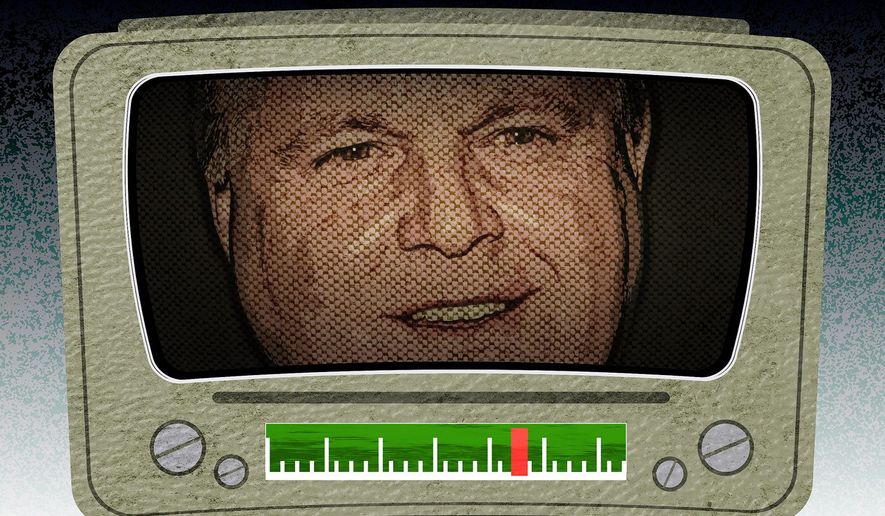OPINION:
It’s been just over seven months since radio legend Rush Limbaugh died - and eight since signing off for his final show on February 2, 2021.
Radio personalities come and go, sometimes quietly and even mysteriously. At times, station managers invoke soviet-era tactics, surreptitiously making talent changes overnight. It’s the nature of the business, not wanting to promote another station or call attention to a departing personality. One day a host is advertising a local car dealership, the next day they’re gone. Explanations are rarely given – they’re into the ether and out of our lives.
But not Rush.
A fixture on the dial for over 30 years, Rush Limbaugh was woven into the fabric of weekday radio life. Critics couldn’t stand him, but they couldn’t ignore him either. No matter where you were in America, you could find him somewhere mid-morning or early afternoon, the familiar beat of “The Pretenders” opening each hour of every show. Regardless of what was happening in the world, you could be sure he had an informed opinion about it.
Those of us who listened were often accused of being mind-numbed robots, waiting on and taking our marching orders from Limbaugh. Nothing could have been farther from the truth. Rush didn’t tell us what to think – he simply articulated the principles we already believed and used his massive megaphone to encourage others to stand strong.
He was also an evangelist for common sense, once wryly noting, “Catch a liberal in a thoughtful moment, and you’ll have a convert for life.”
It was the late evangelist Dr. Billy Graham who famously observed, “Courage is contagious. When a brave man takes a stand, the spines of others are often stiffened.”
One of the reasons we enjoyed listening so often was because Rush gave many of us the courage to stick to our convictions, despite the unrelenting drumbeat of mainstream opinion celebrating the exact opposite. We weren’t crazy for believing what we did. Hearing Rush was the equivalent of C.S. Lewis’ description of friendship, that a special bond forms “at that moment when one person says to another, ‘What! You too? I thought I was the only one.’”
Rush reminded us we weren’t the only ones – in fact, there are tens of millions of us who believe in conservative and constitutional ideals. For us, his show was a daily oasis of sanity in a sea of cultural craziness.
Yet, life goes on, and depending upon where you live, Rush Limbaugh’s timeslot features other talented and articulate conservatives carrying on his legacy, including Dan Bongino, Charlie Kirk, Ben Shapiro, Clay Travis, and Buck Sexton.
But there’s only one Rush – and I miss him.
I slip into my car at lunch for the drive to the gym, look at the radio and instinctively think “Rush” – much like I did “Paul Harvey” for years following his death in February of 2009. But like Rush, there hasn’t been another Paul Harvey, nor will there be.
Pastor John Donne was right when he said death diminishes all of us. It makes us poorer, robbing us of insight and wisdom unique to the person we lose. Limbaugh and Harvey’s words triggered many thoughts I may not have otherwise had – and now may never have with them gone.
Radio is such an intimate medium, populated by men and women talking to potentially millions – but really only talking to us, one on one. Good hosts don’t envision masses – they think of the man or woman behind the wheel or on the run with earbuds. That’s why the loss of a radio legend is felt in a unique and profound way to their legions of fans.
What would Rush Limbaugh think of President Biden and America heading into the fall of 2021? We can be sure he would be deeply concerned – yet still optimistic we’ll find a way out of the muck and mire. After all, we’re Americans.
Rush’s final words on that last program were, “We’ll be back soon” – a broadcast bromide we’ve heard countless times and one that an ailing Rush seemingly didn’t live up to, dying 15 days later.
Yet, maybe Rush wasn’t referring to returning soon to his perch behind the “Golden EIB” microphone. Instead, maybe he was alluding to his Christian belief that life is a vapor that vanishes quickly and that we’ll all be back together again on the other side, and maybe even sooner than we think.
• Paul J. Batura is vice president of communications for Focus on the Family. He is the author of Good Day! The Paul Harvey Story. He can be reached via Twitter @Paul Batura or via email: Paul@PaulBatura.com




Please read our comment policy before commenting.